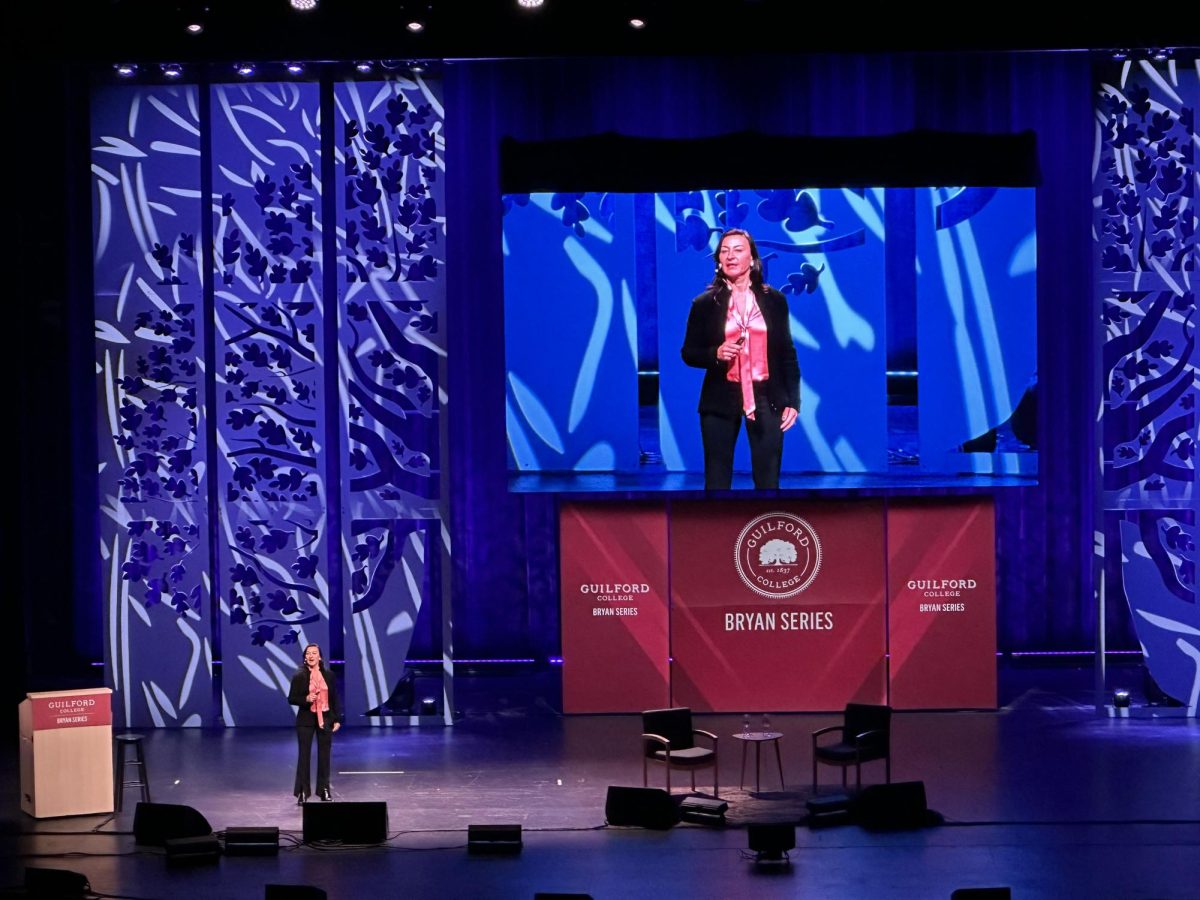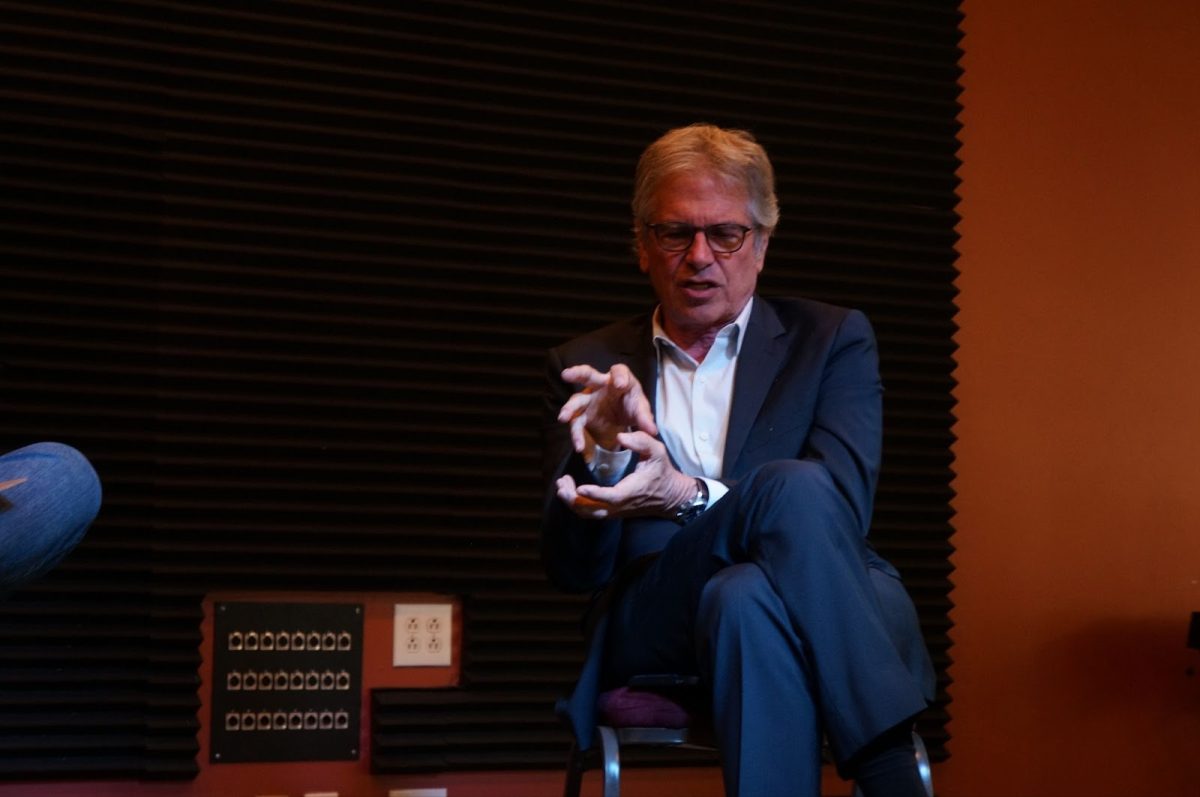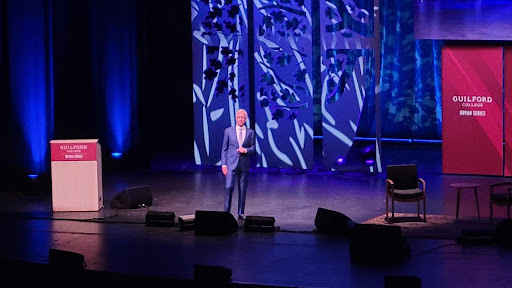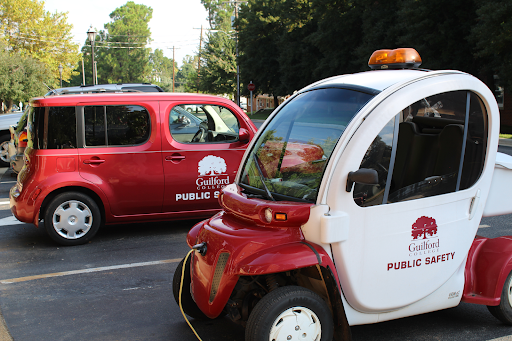Psst! Can you keep a secret?
The Presidential Search Committee sure can, and they intend to do so during the next phase of their search.
The board of trustees is working towards a final leadership statement consisting of an intricate job description for the next Guilford College president.
Before the statement can be finalized, the board must reach consensus. Once this important step is complete, the search process will become confidential for several months.
“We based our decision on the advice given to us by our search consultants and other consultants we talked with,” said Carole Bruce, chair of the Presidential Search Committee and trustee, in an email interview. “Confidentiality during the recruiting and interview process is essential to getting the best-qualified candidates to consider participating in Guilford’s presidential search.”
Richie Zweigenhaft, Dana professor of psychology and participant in the 1996 presidential search, explained the importance of confidentiality in an email interview.
“The prevailing view seems to be that if the process were completely open, including knowledge of who has applied or been nominated, then many potential candidates would withdraw their names,” Zweigenhaft said. “They don’t want those where they are now employed to know that they are looking elsewhere.”
Current President and Professor of Political Science Kent Chabotar commented from a former candidate’s perspective in an email interview.
“This (wish for secrecy) is a common concern not only because of not wanting to appear to be disloyal but also because of professional consequences if you do not get the job,” said Chabotar.
Elwood Parker, professor of mathematics and participant in the 1980 presidential search, expressed similar reasons for this confidentiality.
“If the candidate was turned down for any reason … the candidate would not want that made public,” Parker said. “If a person is nominated and not pursued by the Committee, they would not want the nominator to slow down the process by asking questions.
“There will always be people who withdraw or add their names late in the process. In either case, the candidate would not want that widely known.”
The confidential phase will not last for the duration of the search.
“When it gets to the finalists, the Presidential Search Committee typically makes it clear to the finalists that their names will be made public,” said Zweigenhaft. “They come to the campus to meet various constituencies in the community in a more public fashion.”
Parker provided insights into how the Presidential Search Committee has used this time in the past.
“During this time, applications will begin to come in,” Parker said. “Candidates will provide a statement of why they would be a good fit. Candidates also provide a list of references, which the Committee may contact and follow up with.
“The applications are read through carefully and cut down to a smaller number, then down to the semi-finalists. At this point, campus interviews are set up.”
Chabotar recalled his own interview at Raleigh-Durham International Airport in 2002.
“It was apparent that they had wisely decided to have some standard questions asked of all candidates, one of which I think was, ‘Why do you want to be the president of Guilford College?’” Chabotar said. “They had sent me materials about the College, including the leadership statement, in advance, so I was able to do my homework.”
According to Parker, the duration of this confidential period varies, but it is best if it is no longer than absolutely necessary.
“If the search goes on too long, some candidates may accept other jobs or may not be able to wait for Guilford because of other commitments,” said Parker.
Bruce assures the community that through this confidential phase, the Presidential Search Committee will be able to find the best possible contender.
“We are seeking the best-qualified candidates who are most likely not in the job market; they are probably in very secure positions in excellent institutions around the country,” said Bruce.






